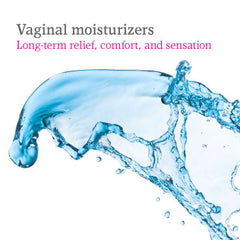You say you’re not sexually active, you’re approaching that menopause milestone, and your last pelvic exam was painful. You’re wondering about how to maintain your vaginal health – and wanting to keep your options open should you meet that “special someone.”
Because of the progressive nature of vulvovaginal atrophy in perimenopause and menopause, time is definitely going to work against you – against all of us, for that matter. With with less circulating estrogen, the changes to the genitals will continue to lead to more discomfort and dryness, and over time there is more narrowing and shortening of the vagina.
At a minimum, using vaginal moisturizers should be part of your now plan. This may help preserve some of the moisture. Over time, moisturizers tend not to work as well, and then prescription therapies may be necessary to restore integrity and comfort to the tissues.
Using a vibrator or dilators keeps the tissues “in use,” so to speak; that “use it or lose it phenomenon” that we see is definitely a factor for the genitals. I understand that time is a limiting factor. Less time is required for maintenance than for reversing significant atrophic changes, which is to say, the longer you wait to devote the time, the harder it is to restore what is lost. Most women are grateful for having invested the time – especially if they do find themselves in a new relationship.
It is, of course, entirely up to you to decide how to invest your time, money, and energy. As with so many areas of life, the more you commit to focusing attention, the more successful the outcome!
 Dr. Barb DePree, M.D., has been a gynecologist and women’s health provider for almost 30 years and a menopause care specialist for the past ten.
Dr. Barb DePree, M.D., has been a gynecologist and women’s health provider for almost 30 years and a menopause care specialist for the past ten.



0 comments